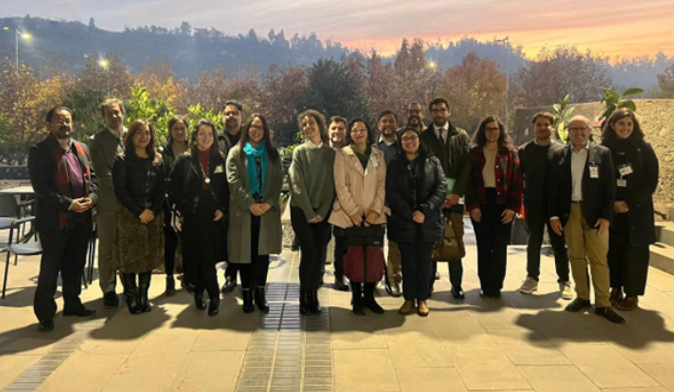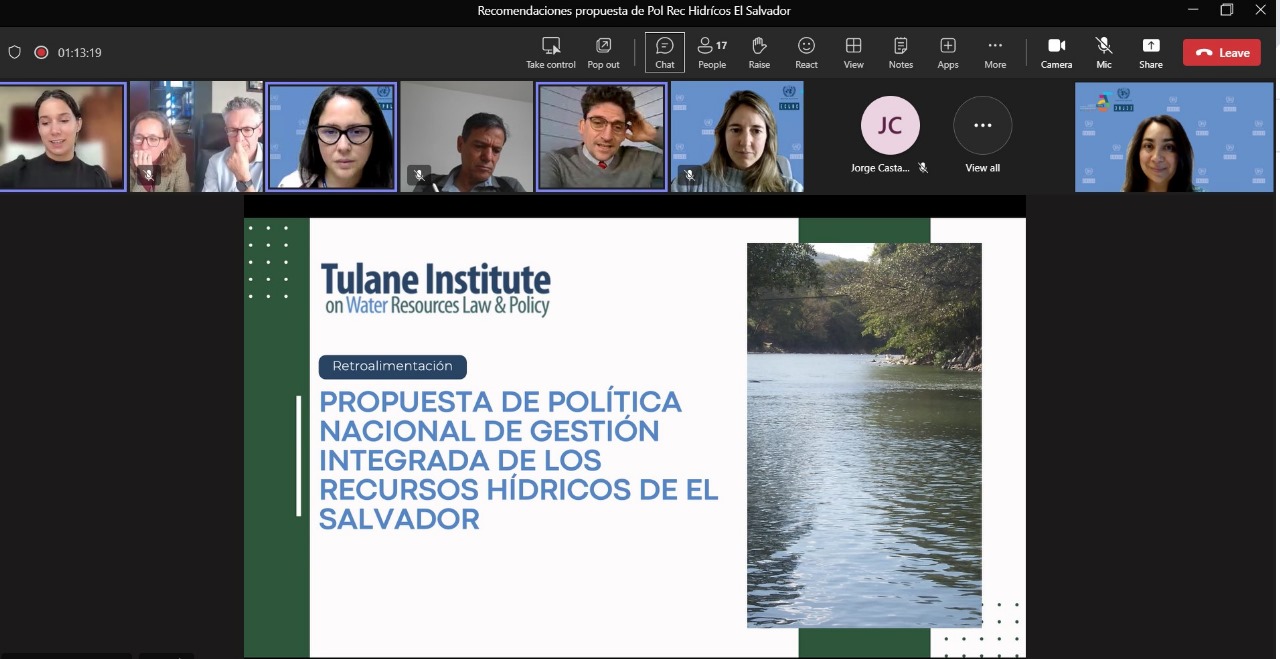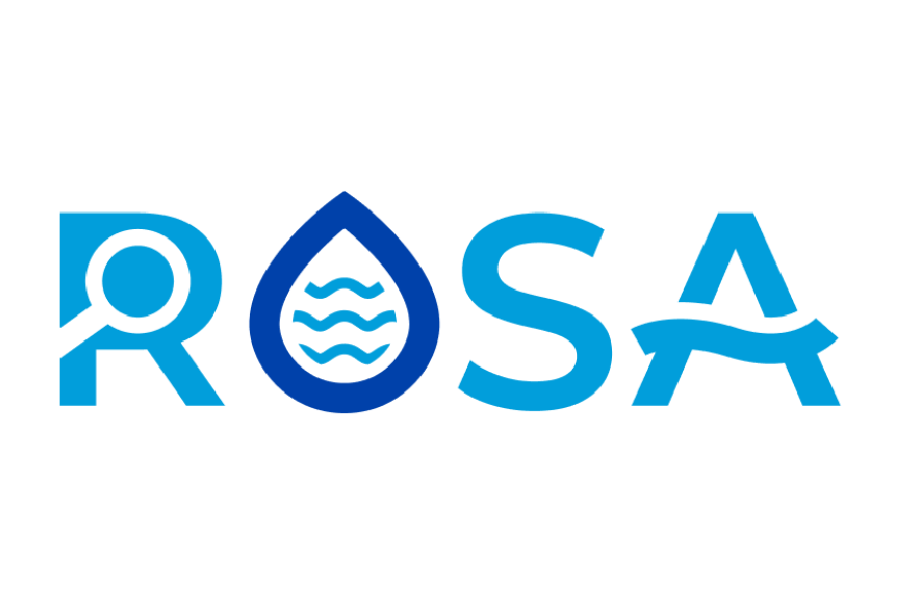Nature-based solutions to increase water availability for agriculture: Second Seminar of the ROSA Project
Work area(s)
Teaser
On Wednesday, May 29, ECLAC carried out the Second Seminar of the Network and Observatory for Water Sustainability (ROSA) Project, which analyzed opportunities to implement Nature-Based Solutions (NbS) to increase water availability for agriculture. This event made it possible to disseminate the study that ECLAC is conducting on NbS in the context of Chile's Irrigation Promotion Law and facilitated the exchange of experiences among participating countries.
Event information

Date
30 May 2024 - 09:25Event type
The ROSA Seminar, led by Dr. Silvia Saravia Matus, Economic Affairs Officer of ECLAC’s Natural Resources Division, focused on exploring countries’ experiences with nature-based solutions (NbS) and the opportunities for implementing them in diverse contexts. Additionally, it aimed to present the study “Identification of Nature-Based Solutions to Increase the Availability of Agricultural Water in the Context of Chile’s Irrigation Promotion Law”, which ECLAC is conducting as part of the amendments to Chile’s Irrigation Promotion Law. This study serves as an example of best practices in the region, with significant potential for replication and knowledge-sharing across other countries.
Ms. Alba Llavona, ECLAC's Regional Expert on Water Resources, presented the study as a starting point for dialogue among ECLAC, the National Irrigation Commission (CNR), the Food and Agriculture Organization of the United Nations (FAO), the Pontifical Catholic University of Chile (PUC), the Inter-American Water Resources Institute (IWR), and the National Water Resources Commission (NWRC). The presentation, organized by IICA and the ROSA countries, began with a brief introduction to the Irrigation Promotion Law and its amendments, emphasizing the need to define and prioritize nature-based solutions (NbS) eligible for subsidies under the Law.
The presentation outlined the study’s methodology, which included an analysis of the Chilean Irrigation Promotion Law, an extensive review of literature on NbS, a characterization of identified NbS, the development of criteria for selecting subsidizable NbS under the Law, and the study’s findings and next steps. It concluded with expert recommendations on the study and general insights regarding NbS.
Representatives from the CNR, including Ms. Tania Fernández, Head of the Irrigation Promotion Department, and Ms. María Jesús Llambías, a Policy Unit professional, emphasized the growing importance of NbS within the framework of the Irrigation Promotion Law. They noted how the Law has evolved to include NbS in irrigation projects, shifting focus from merely installing infrastructure to emphasizing its purpose in supporting human well-being and biodiversity. This shift opens new opportunities for enhancing water and food security and addressing the challenges of climate change.
Finally, they acknowledged challenges in implementing the Law, such as motivating farmers to adopt NbS projects and training consultants to design these initiatives. Representatives from the founding ROSA countries also participated, sharing their national experiences on the topic:
- Panama: Ms. Mayela Guiteria Cortez, Coordinator and Liaison for Water and Sanitation Project Monitoring at the Ministry of the Presidency, highlighted initiatives such as micro-reservoirs for commercial agriculture and multipurpose reservoirs, as well as the environmental economic incentives program led by the Panama Canal Authority.
- El Salvador: Mr. Jorge Castaneda, President of the Salvadoran Water Authority (ASA), presented the La Reina Chalatenango project, which leverages nature-based solutions (NbS) to utilize rainwater, promoting a circular economy and permaculture.
- Dominican Republic: Mr. Juan Francisco Saldaña, Director of Development Planning at the National Institute of Hydraulic Resources (INDRHI), discussed payment for environmental services in water-producing basins and other projects aimed at improving agricultural water availability through NbS.
- Plurinational State of Bolivia: Mr. Daniel Estrada, Environmental Specialist for the Bolivia Resilient to Climate Risks Program, and Mr. Mario Tames, Risk Management Officer at the Vice Ministry of Water Resources and Irrigation, presented the Plurinational Water Resources Plan and the program "Lucho for a Climate-Smart and Resilient Bolivia" by the Ministry of Environment and Water. These initiatives focus on NbS to enhance integrated water resource management and resilience to climate variability.
The seminar concluded with the participation of regional water resources experts, including Mr. Adrián Rodríguez, Chief of the Agricultural Development Unit at ECLAC; Mr. Hombray Taylor, Coordinator of the Water and Agriculture Initiative at IICA; Mr. Luiz Beduschi, Senior Rural Development Policy Officer at FAO; and Mr. Guillermo Donoso, Professor in the Department of Agricultural Economics at PUC. The discussion focused on reflecting upon the challenges and opportunities of nature-based solutions (NbS) in the region, emphasizing the need to adjust policies and incentives, enhance training, and promote multidisciplinary collaboration to ensure the effective adoption of these solutions.
The audience showed great interest in the topic and positively valued the session, highlighting the importance of such gatherings to elevate the relevance of NbS at the regional level. Dr. Silvia Saravia Matus concluded the seminar by reaffirming ECLAC’s commitment to continuing its research and collaboration with the CNR and ROSA countries to promote the use of NbS, thereby contributing to more sustainable and resilient development in the region.
Watch the recording here.
Related content

Cepal participa en Iniciativa Hemisférica Agua y Agricultura: el IICA presenta la propuesta para afrontar la crisis hídrica y asegurar la seguridad alimentaria
San José, Costa Rica, 20 de julio de 2023 (IICA)

ECLAC Organizes Session for Recommendations on the Draft of El Salvador's Water Resources Policy Proposal
On December 22, 2023, a closed session was held to discuss the new Water Resources Policy Proposal of El Salvador, led by the Salvadoran Water Authority (ASA).
Attachment(s)
Related project(s)
Organizing institution
Economic Commission for Latin America and the Caribbean (ECLAC)
- https://www.cepal.org
- 56 222100000
